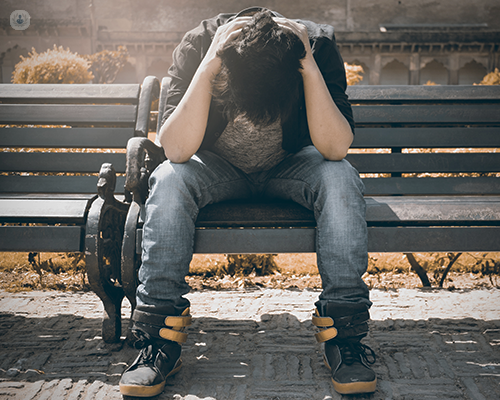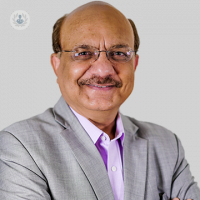Is stress a mental health condition?
Autore:We all feel stressed from time to time, but have you ever wondered exactly what stress is? Stress is not like depression or anxiety.
You can’t diagnose someone with stress, and we don’t have medication to specifically target stress. So why do we use the word at all? Renowned psychiatrist Dr Kishore Chandiramani explains what stress is, how it can affect you, and how it can be “treated”.

Where does the word “stress” come from?
The word stress is a term borrowed from physics. It was initially used to measure the strength of metal, to see whether it can resist pressure. So if we were to translate it into psychological terms, then stress is defined as the gap between the demands placed on you and your ability to cope with them.
This means that the more you have to cope with, the more you will get stressed. On the other hand, the more you are able to deal with, the less stress you will feel. Stress can come from any corner of life. It could be coming from work, from family, relationships, or a major life event such as bereavement or moving house.
Is stress a mental health condition?
Stress is a term that mental health professionals don't like using because it doesn't convey anything and it can't be helpful in treating the patient.
However, there are mental health conditions which are related to stress, the most well-known being post-traumatic stress disorder (PTSD). We use these diagnoses of stress disorders only when the person cannot be neatly fitted into other disorders like anxiety, depression, anger, bipolar disorder and schizophrenia.
You can think of stress as an overarching factor which contributes to many of these disorders. However, its effect goes far beyond specific disorders.
The wider impact of stress
Stress can manifest differently in different individuals. Sometimes, it manifests directly as anxiety, depression, indecision, poor concentration and tiredness, whereas, at other times, it manifests in a disguised way. People become unhappy about their jobs, about their relationships, about the place they live and sometimes, stress can also lead to some addictions. People start relying on smoking, alcohol, even sexual addiction can be seen as part of stress.
For other people, it manifests in physical symptoms. It can manifest as high blood pressure (hypertension), asthma, skin disorders, irritable bowel syndrome (IBS), generalised aches and pains, chest pain and as migraines.
So it varies from person to person. It's like when you stretch a handkerchief – it may tear at a certain place, but if you pick up another handkerchief and stretch it, it might tear at a different place. Depending upon where the weak spots are, individuals will manifest stress in that way.
It's very important to acknowledge that the symptom that you're experiencing is related to stress, because only then can something be done about it.
What can I do to tackle stress?
At its most basic, there are two ways to tackle stress:
- either you reduce the demands that are placed on you, or
- you learn how to increase your coping strategies so that this gap is narrowed
The problem with the first strategy is that most of the time, we can’t avoid the demands that are placed on us. We’re not in complete control over our lives, and in any case, the demands upon us are not always entirely negative. They may well be central to living a satisfying and fulfilling life.
Therefore, the best way to manage stress is to become immune to it. If you are in a stressful situation and if you have learned how to be immune to stress, you will not feel stress at all and you will be able to respond to the situation appropriately.
It is not the actual activity that causes stress - it's our emotional reaction and how we react to different situations that cause stress. So if we are able to control our emotions in a given situation, then we will find that the situation will not be stressful for us at all.
In the next article, I will discuss the many strategies that exist for doing this, and which are actually effective.
Dr Chandiramani can help you learn to cope with stressful situations and stress-inducing mental health conditions. Visit his profile to arrange your first consultation and to get started.


